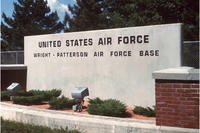President Donald Trump has brushed aside the vehement complaints of NATO ally Turkey and authorized U.S. forces in Syria to arm the Kurdish YPG group leading the drive on the ISIS capital of Raqqa, the Pentagon said Tuesday.
Trump signed off Monday on arming the YPG, or People's Protection Units, which are part of the U.S.-backed Syrian Democratic Forces, "as necessary to ensure a clear victory over the Islamic State of Iraq and Syria in Raqqa," Dana White, chief Pentagon spokesperson, said in a statement.
Until now, the Defense Department had admitted only to supplying weapons to the Syrian Arab Coalition element of the SDF.
"We are keenly aware of the security concerns of our coalition partner Turkey," White said. "We want to reassure the people and government of Turkey that the U.S. is committed to preventing additional security risks and protecting our NATO ally."
Turkish President Recep Tayyip Erdogan has repeatedly threatened additional attacks against the YPG, which Turkey considers a terrorist group linked to the PKK, or Kurdistan Workers Party.
Erdogan is expected to travel to Washington to meet with Trump next week in what will be their first face-to-face meeting since Trump took office.
The Pentagon sought to assure Turkey that the decision to arm the YPG would not translate into U.S. support for a Kurdish enclave in Syria.
"The U.S. continues to prioritize our support for Arab elements of the SDF," White said. "Raqqa and all liberated territory should return to the governance of local Syrian Arabs."
The YPG clashed with the Turkish military last year as Turkey began Operation Euphrates Shield to clear border areas of ISIS.
Last month, in a rare rebuke to a NATO ally, the U.S. military charged that Turkish airstrikes against the YPG in northern Syria came with little warning and could have endangered American advisers.
"We were troubled by that," Air Force Col. John Dorrian, a spokesman for Combined Joint Task Force-Operation Inherent Resolve, said of Turkey's failure to give adequate warning of airstrikes in the Hasaka area.
The strikes reportedly killed at least 20 fighters of the YPG, which has proven to be the most effective anti-ISIS force in northeastern Syria.
"We had forces within six miles of the strikes," Dorrian said. "It was an unsafe way to conduct operations."
-- Richard Sisk can be reached at Richard.Sisk@Military.com.























